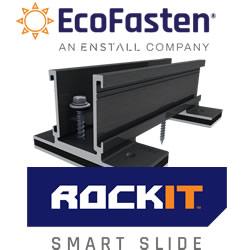It's Time for a Non-Renewable Carbon User Fee for Fuels
Advanced Biofuels USA lays out idea for disappearing tax on non-renewable portions of transportation fuel and natural gas.
"If were serious about reducing Climate Change caused by Green House Gases, then we need serious actions," said Joanne Ivancic, Executive Director of Advanced Biofuels USA on Capitol Hill in Washington DC. "The first steps are including the price of Green House Gas (GHG) effects in non-renewable carbon fuels and committing serious money to renewable fuel research and infrastructure development," she stated.
To accomplish this, Advanced Biofuels USA introduced a new idea for capturing externalities of non-renewable fuels and for funding needed research - a Non-Renewable Carbon Fuel User Fee - at the Congressional Renewable Energy and Energy Efficiency EXPO + Forum on July 9th. In her presentation at the US House of Representatives Cannon Office Building, Ivancic laid out the salient points of this revolutionary approach.
- The Advanced Biofuels USA proposal uses lower priced renewable fuels to drive the consumer market. When the true costs of fuel become apparent, consumers will demand higher renewable portions of fuels for transportation, power and heat.
- The fee, which is based on current scientific estimates of Climate Change effects and mitigation costs, applies to only the non-renewable portion of liquid and gas used for transportation and stationary source combustion.
- The fee, between $50 and $100/ton of non-renewable carbon, translates into only 3.5% to 7% increases in current transportation fuel prices; or, less than the volatility we commonly experience in gasoline prices.
- The fee will disappear as lower priced renewable fuels take over the market.
Revenues from the fee will be used for two purposes:
1) Renewable Fuel R&D: An immediate Apollo type program should be funded with between 50% and 60% of the fees. It should be administered by the National Science Foundation (NSF) and be focused on getting affordable non-food biomass fuels and gases into the pipeline in less than 7 years.
2)Renewable Fuel Infrastructure: The upgraded fuel pumps, decentralized processing/distribution modules, and temporary rebates to people not able to afford the initial lack of renewable fuel would be funded with between 40% and 50% of the fees. These programs would be run by the states. They know what the needs are and the most effective way to address them.
The Advanced Biofuels USA proposal will spur investment, innovation, installation and use of renewable choices.
"Not only will we see a rapid reduction in GHG emissions," said Ivancic, "but more important, a sustainable renewable fuel industry will create good jobs for Americans in research labs, rural towns, and urban manufacturing plants."
Collection of this user fee would not require new bureaucracies. Existing consumer point-of-sale fuel and utility tax collections systems (for natural gas) would be used.
More details, along with charts, graphs and tables with more information, are available at http://advancedbiofuelsusa.info/wp-content/uploads/2015/07/Carbon-User-Fee-Proposal-July-2105-Rev-3-2-JMI-final.pdf
Featured Product

Introducing RockIt Smart Slide
Introducing RockIt Smart Slide - the ultimate solution for fast and easy installation of the rail-less RockIt racking system on composition shingle roofs. Smart Slide conforms to UL 441 and TAS 100 (A)-95 for wind and wind-driven rain, providing a super-strong watertight seal that is achieved through compression, in most cases without the need for additional sealant. The waterproofing sealant is embedded deep into the granules of the shingle, thanks to the integrated flexible foam layer that provides cushioning. This ensures a secure fit that conforms to any architectural-style shingle. With UltraGrip Technology™, you can rely on a secure installation, as it absorbs the movement created by thermal expansion and contraction. The pre-installed sealing pads are compatible with all composition shingle roofs, making it the ideal choice, even in ambient temperatures as low as 5 degrees.
